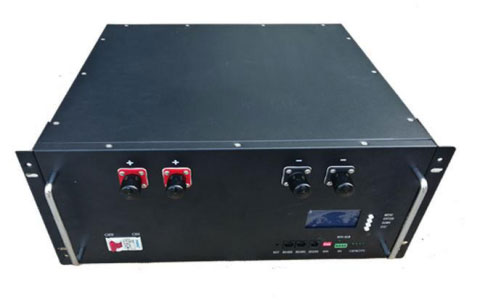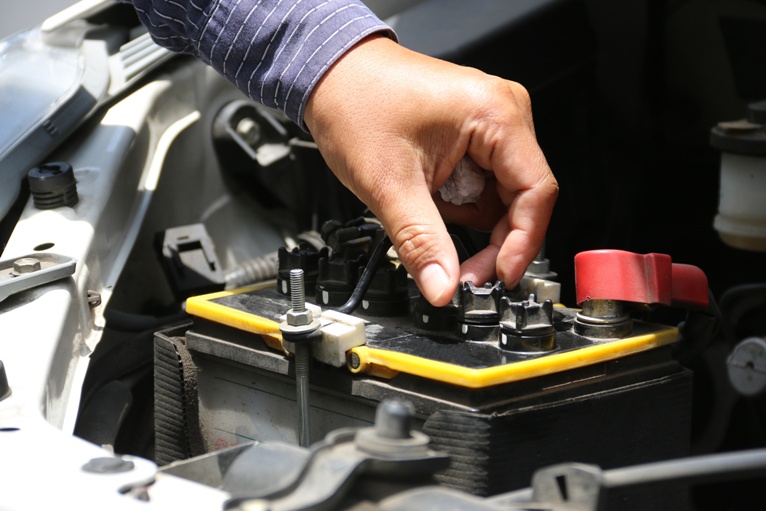What does LiFePO4 mean on a battery?
LiFePO4 stands for Lithium Iron Phosphate, which is a type of rechargeable battery. This battery is commonly used in electric vehicles, power tools, and consumer electronics due to its high energy density, long cycle life, and safety features.
The LiFePO4 battery is made up of a cathode (positive electrode) made of lithium iron phosphate and an anode (negative electrode) made of graphite. The electrolyte is typically made of a lithium salt in an organic solvent. When the battery is charged, lithium ions move from the cathode to the anode, while electrons flow through an external circuit, providing power. During discharge, the process is reversed, and the lithium ions move back to the cathode.
One of the main advantages of LiFePO4 batteries is their high energy density, which means they can store a lot of energy in a small space. This makes them ideal for use in portable devices where space is limited. They also have a long cycle life, meaning they can be charged and discharged many times before needing to be replaced.

Another advantage of LiFePO4 batteries is their safety. Unlike other lithium-ion batteries, which can be prone to overheating and catching fire, LiFePO4 batteries are much more stable and less likely to cause a thermal runaway. This is because the lithium iron phosphate cathode is much more resistant to thermal runaway than other cathode materials, such as lithium cobalt oxide.
In addition to their safety and high energy density, LiFePO4 batteries are also environmentally friendly. Unlike other rechargeable batteries, which often contain toxic chemicals, LiFePO4 batteries are made from non-toxic materials that can be easily recycled.
Overall, LiFePO4 batteries are an excellent choice for a wide range of applications due to their high energy density, long cycle life, safety, and environmental friendliness. As technology continues to advance, it is likely that we will see even more widespread use of LiFePO4 batteries in the future.
-
 When it comes to finding the right U series supplier for your industrial needs, there are several factors to consider. The U series refers to a range of bearings manufactured by various companies that are commonly used in industrial applications, including heavy machinery, automotive, and aerospace industries. Here are some key factors to consider when selecting a U series supplier...Read more
When it comes to finding the right U series supplier for your industrial needs, there are several factors to consider. The U series refers to a range of bearings manufactured by various companies that are commonly used in industrial applications, including heavy machinery, automotive, and aerospace industries. Here are some key factors to consider when selecting a U series supplier...Read more -
 In recent years, there has been a significant advancement in the field of robotics, with intelligent mobile robots becoming increasingly prevalent in various industries. One crucial factor that has contributed to their development is the use of advanced lithium batteries. These batteries have revolutionized the way these robots operate, providing them with longer-lasting power and enhanced efficiency. Lithium batteries...Read more
In recent years, there has been a significant advancement in the field of robotics, with intelligent mobile robots becoming increasingly prevalent in various industries. One crucial factor that has contributed to their development is the use of advanced lithium batteries. These batteries have revolutionized the way these robots operate, providing them with longer-lasting power and enhanced efficiency. Lithium batteries...Read more -
 As the world becomes more dependent on renewable energy sources, the need for efficient and reliable storage solutions becomes increasingly important. One potential solution lies in the use of LiFePO4 battery cells. LiFePO4, or lithium iron phosphate, is a type of lithium-ion battery that has gained popularity in recent years due to its high energy density and long cycle...Read more
As the world becomes more dependent on renewable energy sources, the need for efficient and reliable storage solutions becomes increasingly important. One potential solution lies in the use of LiFePO4 battery cells. LiFePO4, or lithium iron phosphate, is a type of lithium-ion battery that has gained popularity in recent years due to its high energy density and long cycle...Read more -
 Introduction Power distribution systems have been an integral part of modern society, ensuring electricity is delivered reliably and efficiently to homes, businesses, and industries. However, with the increasing demand for electricity and the need to integrate renewable energy sources, traditional power distribution systems are facing significant challenges. To address these challenges, smart grids and lithium battery technology have emerged...Read more
Introduction Power distribution systems have been an integral part of modern society, ensuring electricity is delivered reliably and efficiently to homes, businesses, and industries. However, with the increasing demand for electricity and the need to integrate renewable energy sources, traditional power distribution systems are facing significant challenges. To address these challenges, smart grids and lithium battery technology have emerged...Read more -
 LiFePO4 batteries are known for their high energy density, long cycle life, and low environmental impact. They are widely used in various applications, from electric vehicles to renewable energy storage systems. However, they are vulnerable to temperature extremes, especially low temperatures. When the temperature drops below a certain level, the battery's performance and lifespan can be significantly reduced. To...Read more
LiFePO4 batteries are known for their high energy density, long cycle life, and low environmental impact. They are widely used in various applications, from electric vehicles to renewable energy storage systems. However, they are vulnerable to temperature extremes, especially low temperatures. When the temperature drops below a certain level, the battery's performance and lifespan can be significantly reduced. To...Read more -
 In recent years, cities around the world have been witnessing a remarkable transformation in urban mobility with the introduction of electric scooters. These compact and environmentally friendly vehicles have gained immense popularity as an alternative mode of transportation. Central to the success of electric scooters is the lithium-ion battery, which has revolutionized the way we think about urban mobility. ...Read more
In recent years, cities around the world have been witnessing a remarkable transformation in urban mobility with the introduction of electric scooters. These compact and environmentally friendly vehicles have gained immense popularity as an alternative mode of transportation. Central to the success of electric scooters is the lithium-ion battery, which has revolutionized the way we think about urban mobility. ...Read more -
 The rated capacity of a starter battery indicates the amount of electrical charge that the battery can store and deliver to start an engine. This capacity is usually measured in ampere-hours (Ah) or cold cranking amperes (CCA). The Ah rating of a battery indicates how many amps it can deliver for one hour before it needs to be recharged....Read more
The rated capacity of a starter battery indicates the amount of electrical charge that the battery can store and deliver to start an engine. This capacity is usually measured in ampere-hours (Ah) or cold cranking amperes (CCA). The Ah rating of a battery indicates how many amps it can deliver for one hour before it needs to be recharged....Read more

